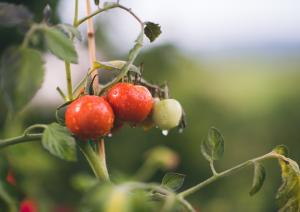Back in 2019, I wrote a little reflection on organic spirituality in an artificial world. I discussed the whole relationship between how food sweet beyond what is natural, pornography that presents sexuality beyond what humans would naturally encounter, drugs, etc. all morph our perspective of the true good. They provide an unnaturally high level of dopamine and endorphins. It makes it hard to enjoy genuine natural goods like an apple or normal marital relations. I discuss how these things damage us both physically and spiritually in our seeking of God.

In late 2018, Matt and Elizabeth Breunig broadcast an episode of their podcast called “The Hedonic Blitzkrieg.” They pointed to all kinds of things that distort our natural desires.
Modern commercial food is among those things that can create artificial dopamine spikes. Most cereal or chocolate is sweet beyond what is natural. French fries are often so coated with unnaturally high levels of fat that a nutritionist at the Center for Science in the Public Interest recommended that a healthy serving of them should be limited to six fries. The Bruenigs commented on how hard it was to find healthy food for their toddler.
Likewise, although humans have traditionally used drugs to get high, modern illegal drugs take this to a new level. We have manufactured drugs out of plants for years, but many of the synthetic versions of opioids found today are that much more powerful. They deliver such a rush of dopamine and endorphins that a wave of euphoria instantly comes over the user. However, in their extreme forms, they so overwhelm us that they can become deadly. Fentanyl can become deadly at just two to three milligrams, or about a grain of sand. Carfentanil is reported to be deadly at 1/100th of that amount—at which point it is almost invisible.
Read the rest over at America Magazine.
Note: This is one of the few articles I write where I was paid for writing it. I still can use your donation on Patreon to help my community and keep me able to write more like this.












